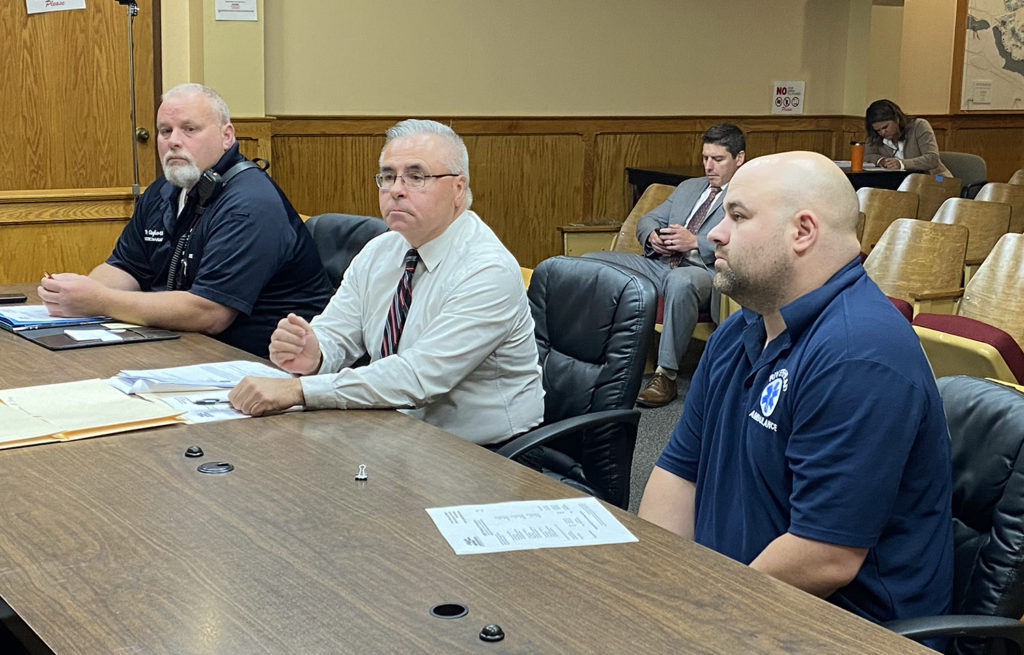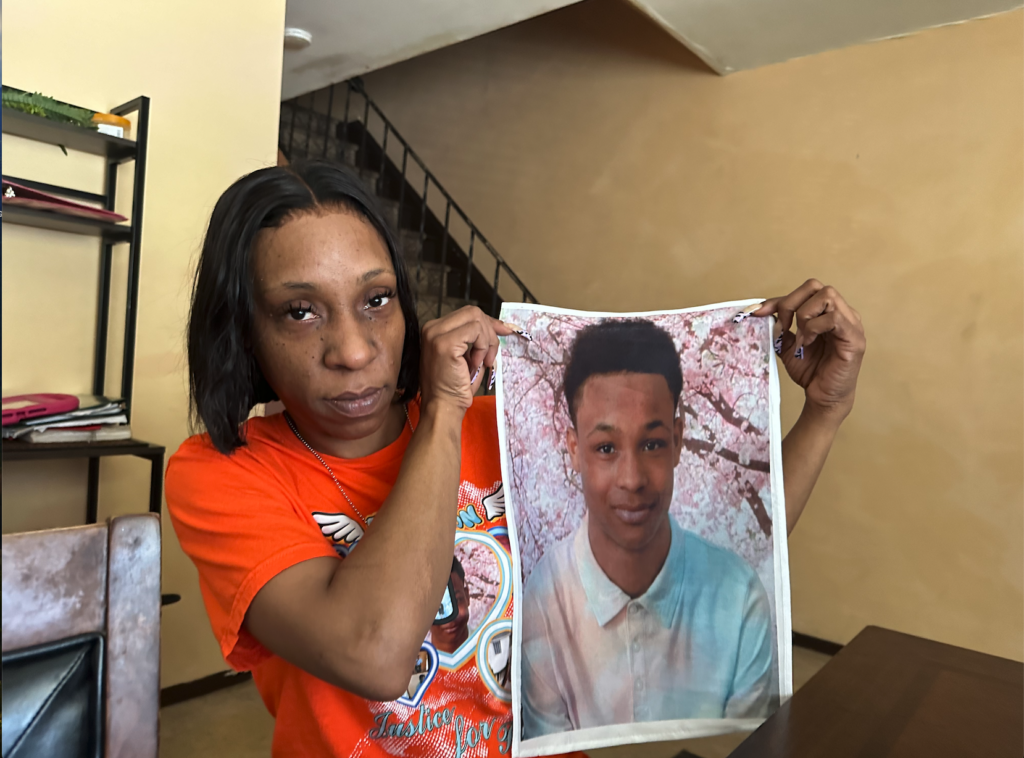Riverhead Volunteer Ambulance Corps seeks to implement full billing policy

The Riverhead Volunteer Ambulance Corps is seeking to expand its practice of billing the people its serves through their auto insurance companies, with the additional revenue generated potentially going toward a long-sought new headquarters.
RVAC has already been billing people who have been involved in motor vehicle crashes in the town, according to Pat Gugliotta, the RVAC’s district manager. The Town Board in 2015 first approved a contract to allow the ambulance corps to bill insurance companies.
Mr. Gugliotta and RVAC president Garrett Lake discussed the plan at Thursday’s Town Board work session, where board members supported the proposal, saying it will increase funding without raising taxes.
The full ambulance billing, which Councilman Tim Hubbard said is being done in many of the ambulance companies on Long Island, would allow the corps to send bills to the insurance company of the victim in any aided case, not just automobile crashes.
The Flanders Northampton Volunteer Ambulance has been doing full billing for about four years, but some residents there have expressed concerns over the ambulance bills they have been receiving.
The RVAC proposal “is set up to get money from the insurance companies only,” Mr. Hubbard said. The person who is transported by the ambulance company will not pay that bill, he said.
They don’t want people to have consider if they can afford the ambulance, he said.
“We’re not looking to collect from anybody,” Mr. Hubbard said. “We don’t want anybody to feel that they could never call an ambulance because they can’t afford to pay for the ambulance ride. The long-term goal in this is to provide more revenue for the ambulance company.”

A company called Certified Ambulance Group, which is working with RVAC, projects the amount of additional income RVAC would receive from the full billing proposal to be between $2.06 million to $2.35 million.
Mr. Lake said the ambulance corps has not received any complaints from residents since the billing for auto crashes began. Some residents may still get a bill to pay a co-pay through their insurance. He said the ambulance corps will send letters to those who have not responded. Letters will be sent at 30, 60 and 90 days. After that, RVAC will write-off the cost, although they must show that they made a “good faith” effort to collect the payment.
“We’ll take the money from the insurance company,” Mr. Gugliotta said. “We’re not worried about your $30 or $70 or whatever it is.”
Mr. Lake said the funding will help RVAC to provide service amid the growing demand in a large township. RVAC responds to as many as 26-30 calls per day.
RVAC has over 100 volunteers, many of whom cover the hours from 6 p.m. to midnight when there are no paid staff. Paid staff are on during the day when many volunteers are at their jobs.
The funding could provide staffing for an additional ambulance, which would limit when RVAC needs to rely on an outside department for mutual aid.
“We’ll be handling everything ourselves,” Mr. Lake said, adding the RVAC currently staffs three ambulances during the day. “When you do 24 calls a day, you run out of people.”
Officials said the extra money also could help in building a new headquarters in the future.
Supervisor Yvette Aguiar said the town will need to start a marketing campaign to inform the public of the change so residents are aware of what to expect if they receive a bill.
Mr. Gugliotta said the cost of medical supplies and other items the corps needs have also increased. He said they used to pay $25 for a box of gloves, now it’s more than $80.
Mr. Gugliotta said RVAC has already submitted its budget for next year and it does not include any anticipate revenue from the full billing system.
“We can always adjust it next year once we see the money coming in and see what it actually is,” he said.
The earliest the full billing would start is January.








